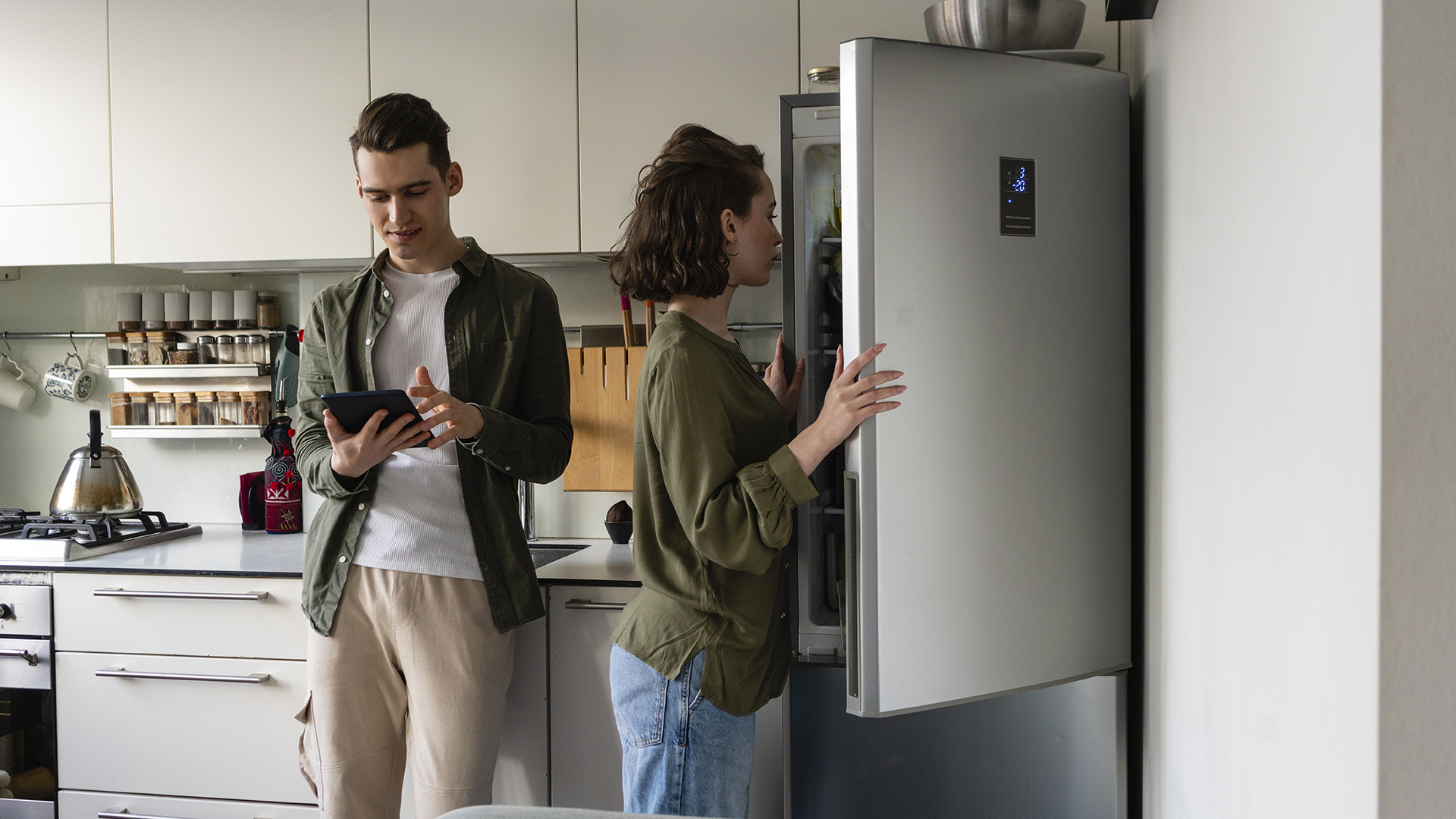No power? Don't panic! Here's how long food can last in a fridge without power
Save yourself from illness and rescue your produce

Power outages can be caused by storm surges, earthquakes, or even heat waves. Your first thought probably is, 'How long does food last in a fridge without power?'
When you lose power (and, subsequently, a lot of food), it's annoying (whether you just did a big grocery shop, batch cook meals, or don't like waste). We've researched how long food can last in a fridge without power so you can save as many groceries as possible and make sure you don't get sick from food.
It's easy to tell if you need to call a professional when your fridge turns off because sometimes it's more than just a power outage. Read on for our top tips on how to deal with your food if the power goes out, even with the best French-door refrigerators.

Mallory Micetich is a home care expert at Angi, with particular expertise in small home living and consumer protection. While currently renting in Denver, CO, she has been a homeowner, investor, landlord, and renter over the last decade. She is committed to minimizing her environmental footprint and to small home living, having lived in only properties of 1,000 square feet or less.
How long will a fridge stay cold without power?
Luckily, a fridge losing power doesn't mean you should immediately panic. Your fridge has likely been consistently at a lower temperature, so it should take a while before it starts to warm up to a dangerous degree.
Mallory Micetich, Home Expert at Angi, says, "When your power goes out, you’ll generally have four to six hours before food in your fridge could become unsafe. Frozen food lasts longer, usually staying safe for up to 48 hours.
In hot weather, food will spoil quicker, while in colder temperatures, it might stay safe for longer."
How long does food stay good without fridge power?
To avoid foodborne illnesses, discard perishable food above 40°F for over 2 hours.
Sign up to receive the latest news, reviews, buying guides and deals direct to your inbox
In a non-functioning fridge, perishable foods (such as meat, poultry, seafood, eggs, and dairy) will not last more than four hours. Likewise, cooked foods such as leftovers will only be kept for about four hours.
For frozen foods, the door of a full freezer can keep food frozen for up to 24 hours, while a half-full freezer will last about 12 hours.
In a non-functioning fridge, fruits, vegetables, and other shelf-stable foods can last 10 hours or more.
How to tell when food has gone bad
One of the challenges of a fridge losing power isn't just fixing it but establishing whether food can be salvaged. You'll want to minimize food waste by trying to hold onto as much as possible—especially non-meat produce that won't spoil as quickly. Some foods will be lost depending on how quickly you catch the power outage. So, how can you tell when food has gone bad?
The CDC (Centers for Disease Control and Prevention) states that you should "throw out perishable food in your refrigerator (meat, fish, cut fruits and vegetables, eggs, milk, and leftovers) after 4 hours without power."
You should also "throw out any food with an unusual odor, color, or texture."
It's always best to err on the side of caution regarding food safety, so if it's past the 4-hour mark or starting to smell funky, it's best to wave goodbye.
How to keep food cold without electricity
If the power outage comes as a surprise and you haven't had time to prepare, the main goal will be to preserve food for as long as possible. Mallory advises, "The best thing you can do is keep your fridge and freezer closed. You're letting cold air out whenever you open one of the doors.
If the outage lasts a while or you’re concerned about food spoiling, you can fill a cooler with ice and transfer your food to the cold cooler. You’ll have to replenish your ice once you notice it is melting, but it can help food last a little longer."
However, if you have had a warning for an emergency that could cause a power outage, it's a good idea to put some measures into place to mitigate a potential food disaster as much as possible. The CDC recommends the following tips to help keep your food safe for as long as possible without a working fridge:
• Freeze containers of water and gel packs to help keep your food at 40 degrees Fahrenheit
• Keep a cooler or frozen gel pack handy in case you need to move your food from the refrigerator
• Buy dry ice or block ice to keep food cold in the refrigerator
How to diagnose a fridge power issue
Not all power outages are caused by natural disasters, so it could be tricky to understand whether it's a momentary blip or a sign of a significant issue. If there's no obvious reason why the power has gone out, it's always wise to check the plug or fuse box first to ensure there hasn't been a trip in the electricity.
If this comes back clear, then you could have a more serious problem with the fridge on your hands.
Mallory Micetich, Home Expert, says, "Knowing the difference between a momentary power outage and a bigger issue with your fridge can be difficult. After a power outage, your fridge and freezer can take around 24 hours to return to a normal temperature. Still, the best thing you can do is monitor your fridge after that period—if the fridge’s temperature is above 40℉, you might be experiencing a bigger issue. I recommend calling a pro to look closer and diagnose the issue."

Holly, the former Features Editor of Top Ten Reviews, brings a wealth of experience in creating practical home content. With a background in freelance writing and product copy, she is dedicated to producing thorough features that help readers make the most of their homes and gardens.
